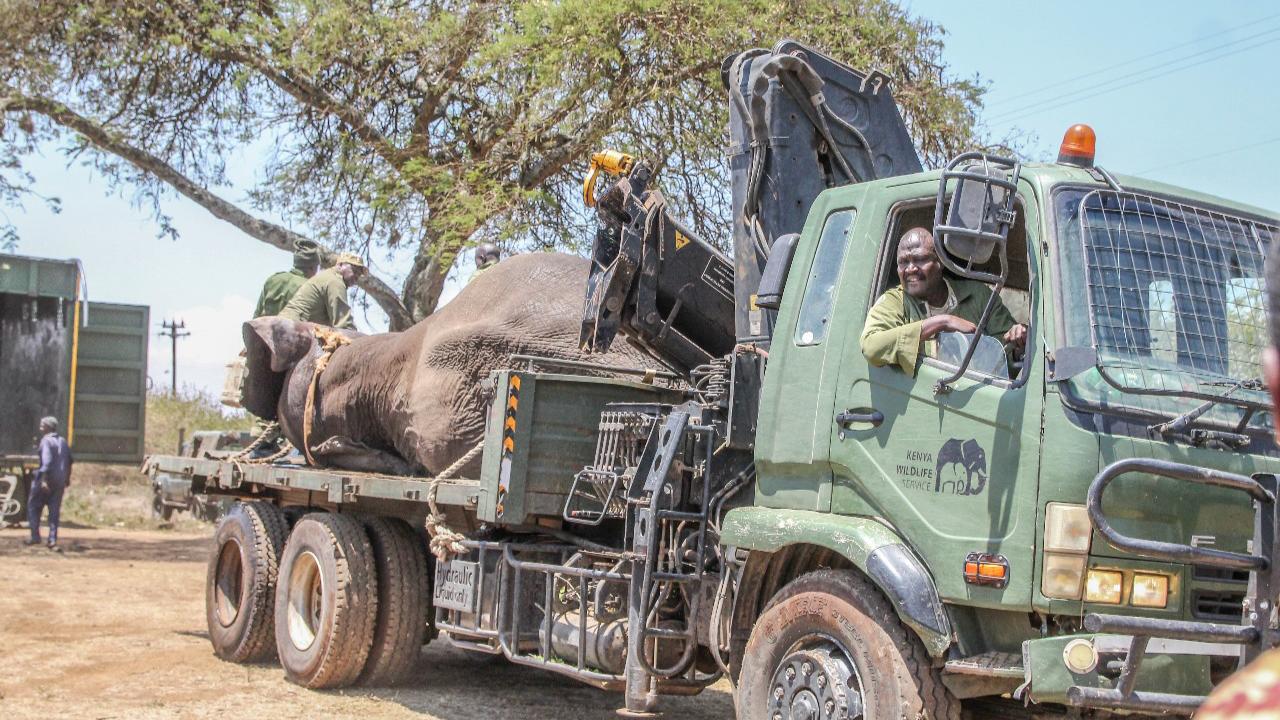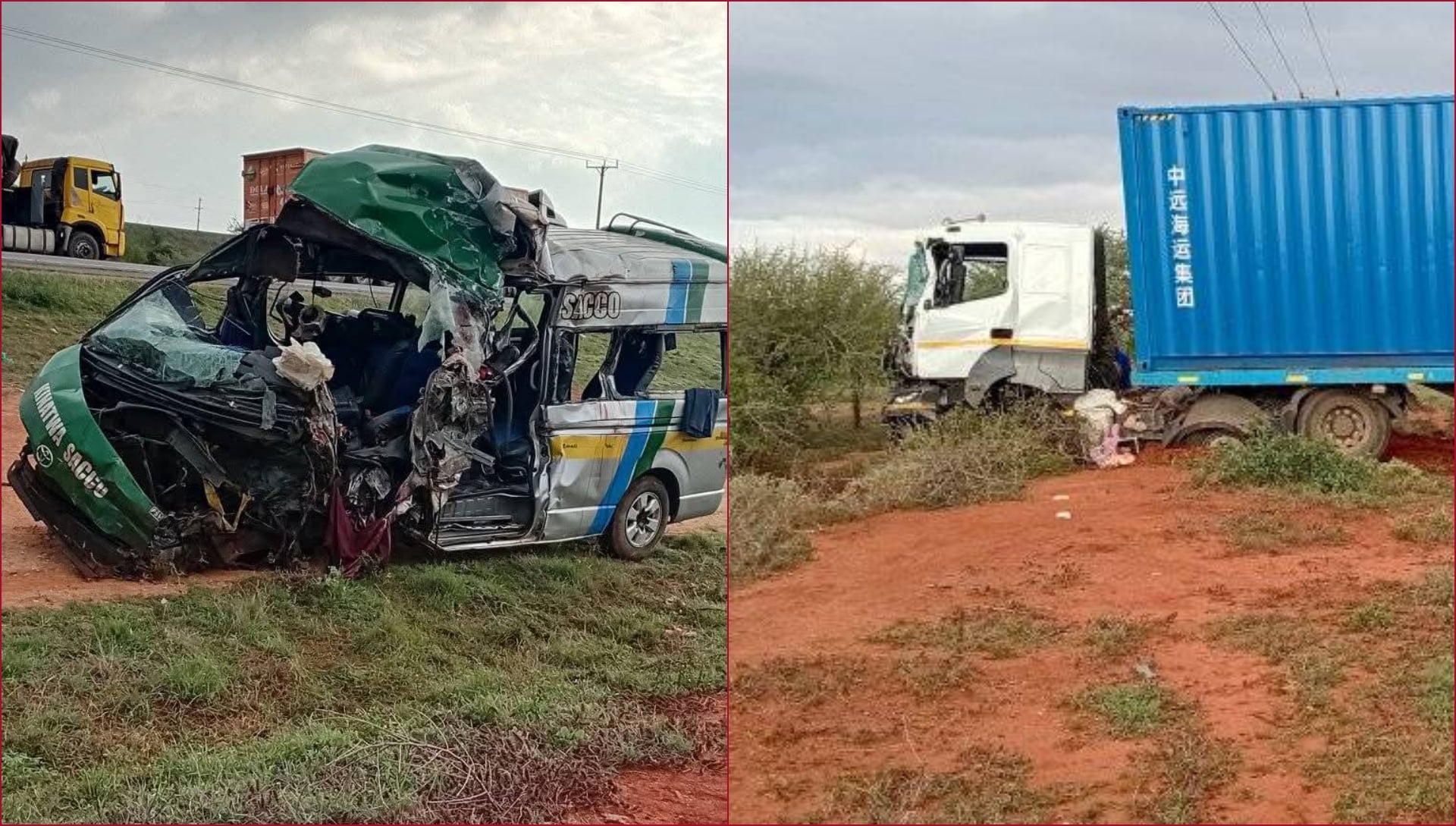The Kenya Wildlife Service (KWS) has relocated a problematic bull elephant from Meru County to Tsavo East National Park in an effort to address human-wildlife conflict.
In a statement on Monday, October 6, KWS confirmed that the elephant was captured in Kithoka Village near Imenti Forest after repeatedly breaching electric fences and raiding farms.
Following its capture, the animal was then transported over 400 kilometers away to its new home in Tsavo East.
"Recently, the Kenya Wildlife Service (KWS) Veterinary and Capture Unit successfully relocated a troublesome bull elephant from Kithoka Village near Imenti Forest, Meru County, to Tsavo East National Park - over 400 kilometers away. The elephant had become adept at breaching electric fences and raiding crops, posing a threat to local livelihoods," the statement read.

Read More
KWS noted that the relocation was necessary not only to protect the community but also to prevent the elephant from influencing others in the herd.
"Known for their intelligence and strong memory, elephants can pass on learned behaviour. This relocation prevented the bull from teaching others his fence-breaking tactics and ensured his well-being in the vast 13,700-square-kilometer expanse of Tsavo East," the statement read.

KWS noted that preventing conflicts between people and animals remains one of its top concerns, especially in areas where farming and settlements are expanding into wildlife habitats.
"This operation reflects KWS’s deep understanding of elephant behavior, ecology, and social dynamics - and reinforces our commitment to promoting sustainable coexistence between people and wildlife.
"Addressing human-wildlife conflict remains a key priority for the Kenya Wildlife Service, especially as expanding agricultural activities increasingly encroach on traditional wildlife habitats as witnessed in the Imenti Forest region. To reduce such conflicts, KWS continues to implement measures such as strategic fencing and, when necessary, the relocation of problematic animals," the statement further read.

Elsewhere, this comes two weeks after six lions from Oleisukut Conservancy in the Maasai Mara were reported to have shown signs of poisoning, sparking action from KWS veterinarians who rushed to administer treatment.
In a statement on Monday, September 29, KWS confirmed that all six lions survived after receiving emergency care and relocation to safety.
"Six lions in Oleisukut Conservancy - Maasai Mara, were reported showing signs of poisoning. Our veterinary team responded swiftly, administering emergency treatment, stabilizing the pride, and relocating them to safety.
"Thankfully, all six survived - four have fully recovered while two remain under close monitoring," the agency said.
KWS further revealed that investigations into the source of the poisoning have been launched.
"Kenya Wildlife Service remains steadfast in its mandate to conserve and protect Kenya’s iconic species. Investigations into the source of the poisoning are ongoing, with continuous monitoring of the pride in place.
"We reaffirm our commitment to safeguarding our wildlife heritage for current and future generations," the agency added.






